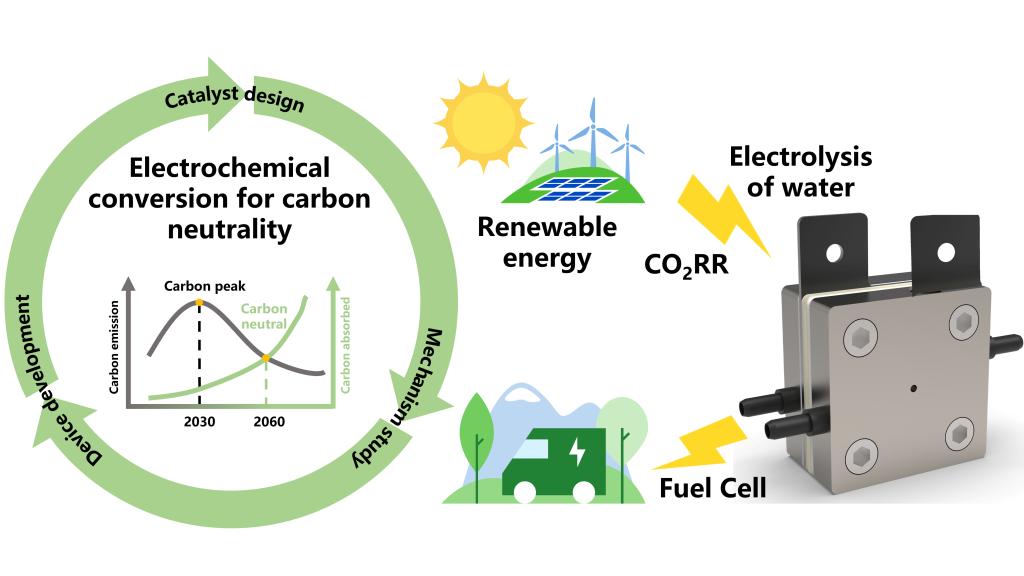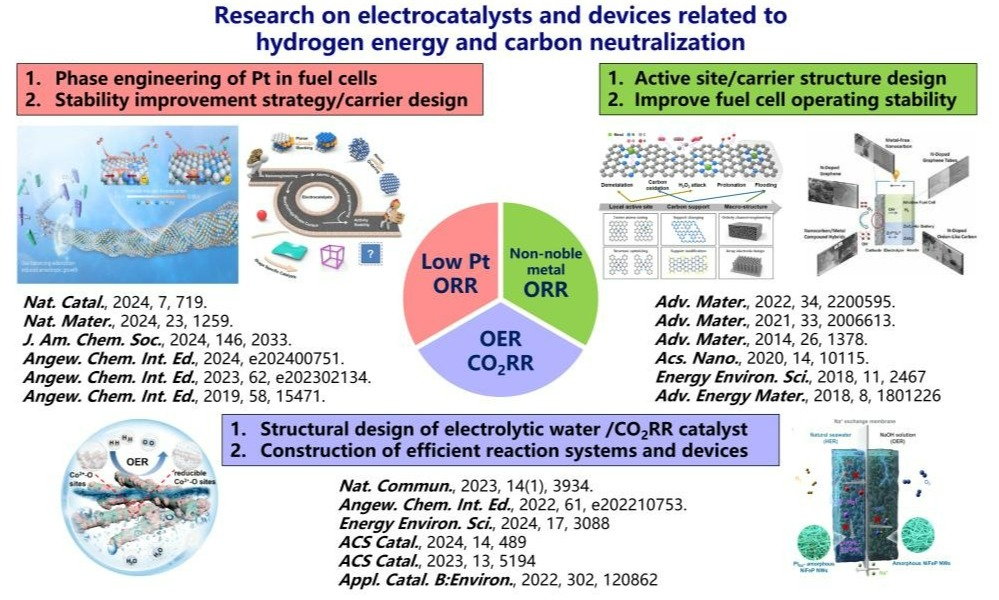As industry develops and society progresses, the demand for energy continues to grow. However, the excessive consumption of fossil fuels can bring irreversible damage to the global climate, such as the greenhouse effect and acid rain. Today, countries around the world are promoting the development of new pollution-free green energy and are committed to adjusting the energy structure. In 2020, China clearly proposed the "dual carbon" goal of "striving to reach peak carbon dioxide emissions before 2030 and striving to achieve carbon neutrality before 2060," highlighting the significance of research in the field of clean energy. Among various types of energy, hydrogen energy, as a clean and highly energy-dense secondary energy source, is expected to become a universal energy carrier in the future. Producing hydrogen through the electrolysis of water using renewable energy sources such as wind power, solar energy, and tidal energy is a clean and sustainable method. Combining it with hydrogen fuel cells can achieve a water-hydrogen/oxygen cycle, which is crucial for future renewable energy plans. On this basis, further introducing CO2 and reducing it electrochemically to expand the material cycle to a C/H/O large cycle can fundamentally achieve carbon neutrality.

Main research content
Our research group focuses on the electrochemical conversion of clean energy towards carbon neutrality, concentrating on key clean energy conversion technologies such as hydrogen fuel cells, water electrolysis for hydrogen production, and CO2 reduction. Our work revolves around catalyst design, reaction mechanism research, and device development, covering core reactions such as oxygen reduction reaction (ORR), oxygen evolution reaction (OER), hydrogen evolution reaction (HER), and carbon dioxide reduction reaction (CO2RR). The research group uses the design of high-performance catalysts as a link, guiding catalyst design through research on reaction mechanisms, and promoting the application of catalysts through device integration. We strive to achieve efficient conversion between electrical and chemical energy, providing direction for carbon neutrality.

Main publications
